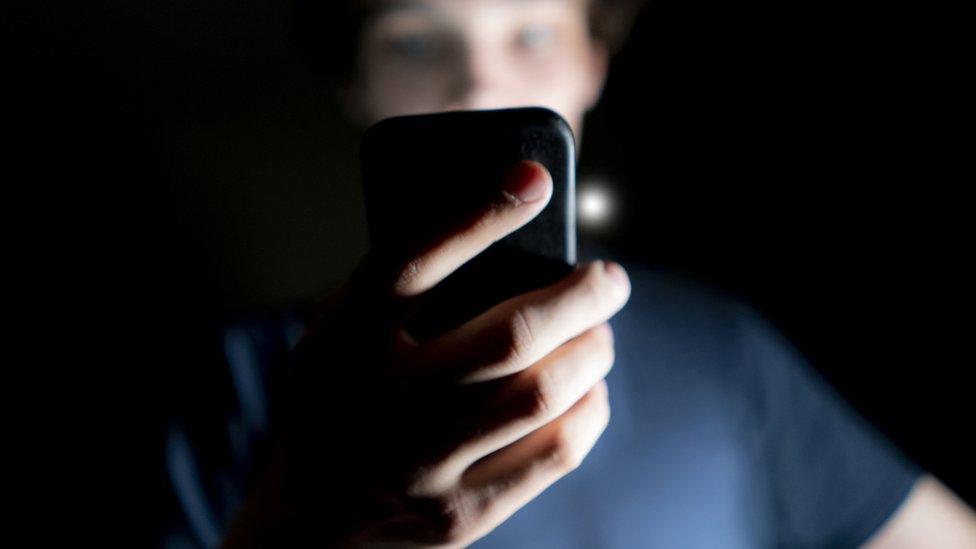Terrorism: What's behind surge in arrests of under-18s?
- Published
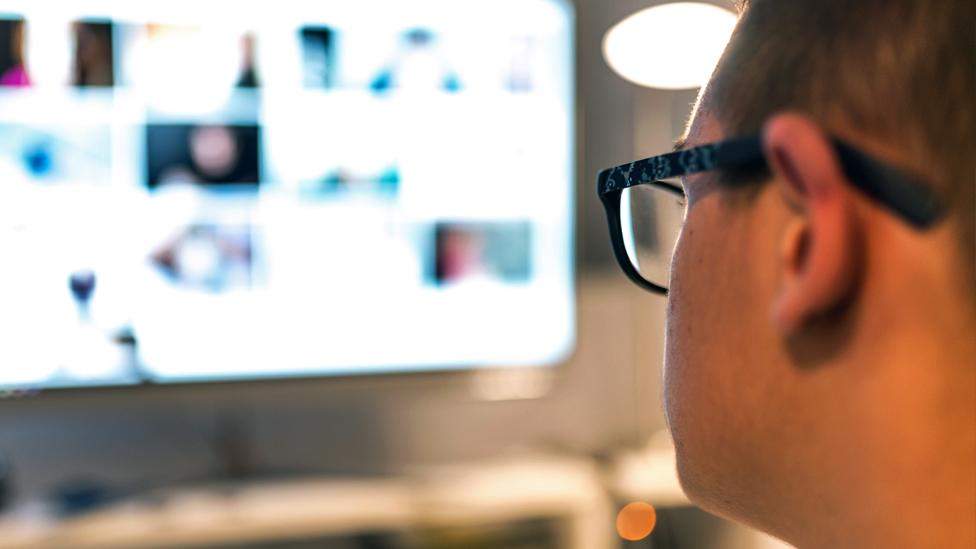
Isolation and more time being spent online have been blamed for driving young people towards extremist views
Record numbers of young people are being arrested for terrorism-related offences. And their journey into extremism tends to start online.
Jon started going down the rabbit hole when he saw a social media post.
He was at school when a friend showed him something about British soldiers living on the streets.
It struck a chord with Jon. His uncle was in the Army, and here was a group that cared about how former soldiers were treated.
So Jon followed it, and that's when things turned darker.
"Once I got involved they'd be saying things to me like how veterans were struggling because of people from other countries taking money out of the system," he says.
Jon, whose name we've changed, says he absorbed more and more posts making questionable claims like these, and his views gradually became "more extreme".
But it also gave Jon a sense of purpose.
"I was a very angry guy, struggling academically and didn't know where my life was going," he says.
Jon got pulled towards the far-right and groups usually associated with racism and ultra-nationalism - the belief that one country and its people are superior to others.
His story's not unusual.
A worrying trend
Figures from UK Counter Terrorism Policing (CTP) show that one in five of those arrested for terrorism-related offences are under 18.
In 2019, just 4% of those arrested were aged under 18 - but by 2022 the figure had increased to 20%.
Matt Jukes, the head of CTP, says it's a "really worrying trend".
"These extreme ideologies are much more available online and on social media than they ever were before," he says.
"And we know young people are exploring dark corners of the web."
Experiences in these shadowy sites, groups and forums can spill over into the real world, and in Jon's case that was trying to convert others.
He even started delivering hate speeches at college, which got the attention of the school's safeguarding lead.
By the time she approached Jon he was so far-gone that he offered her a campaign sticker and invited her to a demonstration.
Thinking back, Jon, who's now 23, says that was "the best thing I ever did".
'It was all fake'
It led to him being referred to the government's counter-terrorism programme, Prevent.
The scheme is designed to stop people being drawn into terrorism before it's too late, and schools and colleges were given a legal duty to identify those at risk in 2015.
It's been heavily criticised since, particularly by Muslim groups who say it unfairly targets their faith.
In the year up to March 2022, CTP say there were 6,406 referrals to Prevent - 20% related to extreme right-wing ideology and 16% to Islamist ideology.
A recent review - which was itself accused of bias - said Prevent had failed to stop people referred to the programme who went on to be involved in attacks.
But the people behind it say it's been successful at diverting people away from a dark path.
Jon says he got on really well with his intervention worker, who went through the statistics and claims in the posts he'd been sharing.
And it showed that they weren't factually accurate.
"He got me to download an app of the Quran and showed me that all quotes I'd been sharing from it weren't even in there.
"It was all fake," he says.
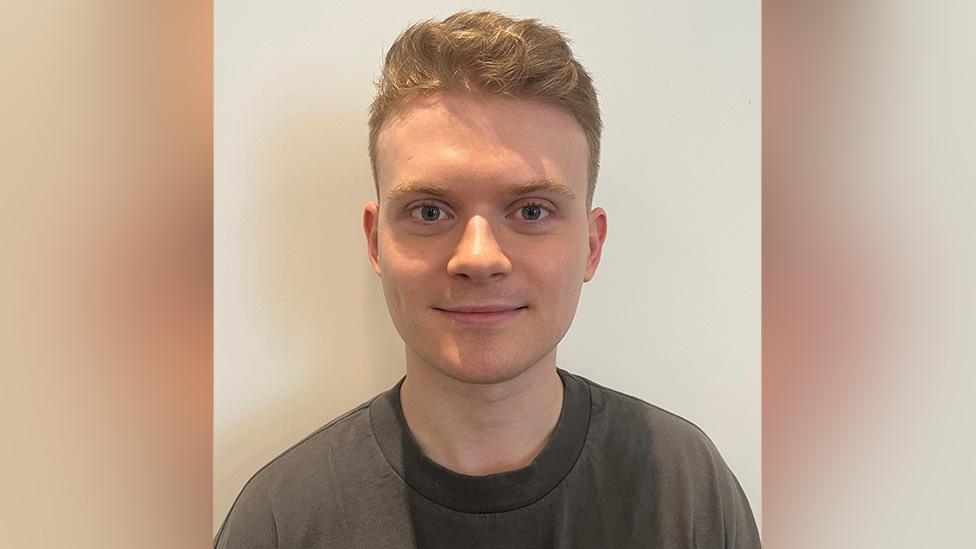
Max witnessed the Manchester Arena terror attack in which 22 people died
CTP chief Matt says the pandemic has fuelled the increase in young people involved in terrorist offending, and that social isolation and time spent online is a contributing factor.
The way young people interact with hateful content is also changing.
More and more are taking elements of existing extreme viewpoints and merging them together to create new ideologies, according to CTP.
"We're seeing a big increase in people drawing down hateful content and using that to construct their own view of the world," says Matt.
Police want more under-25s to report their concerns, so they've recruited people who've been caught up in terror attacks to show the results of extremist ideologies.
People like Max Balegde, who was with his little sister when an Islamist terrorist detonated a bomb at Manchester Arena following an Ariana Grande gig in 2017.
They weren't physically hurt, but Max still experiences the psychological impact and flashbacks to what they witnessed.
"It's so easy to get swept up in it and believe things that aren't true," he says.
"I hope I can interact with people who've been seeing stuff on social media, and share my story about the impact that terrorism can have on people's lives."
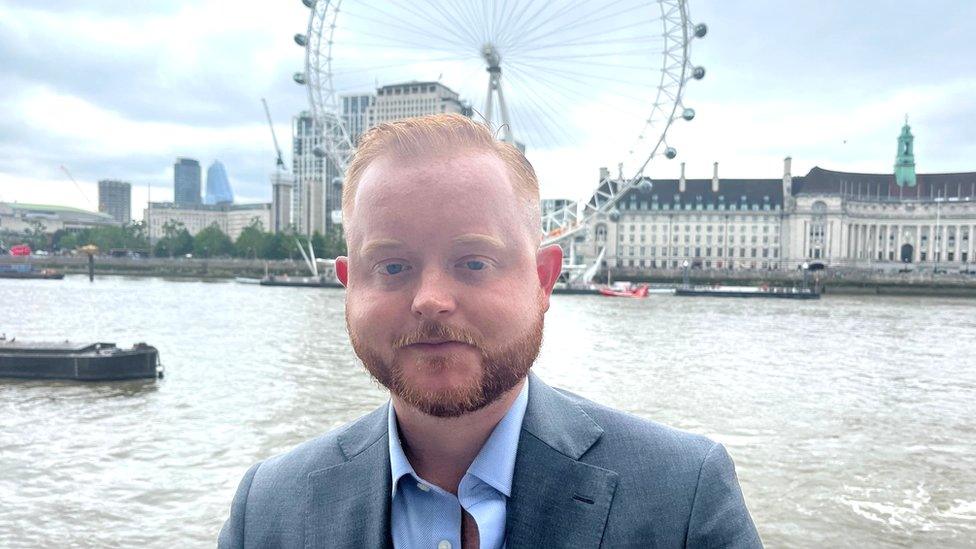
Travis Frain was injured when a terrorist drove a car down the pavement on Westminster Bridge
Travis Frain also works with young people to share his story.
Travis was 19 when he suffered a fractured leg, shrapnel wound and broke his left hand in the 2017 Westminster Bridge attack in London.
He was one of dozens hurt when a terrorist drove a car along the pavement of the bridge, which crosses the River Thames next to the Houses of Parliament.
"I looked up and saw a car coming towards me, I went over the bonnet into the air, and then hit the concrete," he says.
He ended up quitting university and moving back home to recover, but counts himself as "one of the lucky ones".
Max, Travis and Jon hope speaking out will mean luck no longer comes into it, and people can be kept away from extremism.
And Jon has a piece of advice for anyone worried that they or a friend might be slipping down the rabbit hole.
"Reach out and get some help," he says.
"Don't be scared of leaving or getting in trouble, you'll just get good help to turn your life around."


Follow Newsbeat on Twitter, external and YouTube, external.
Listen to Newsbeat live at 12:45 and 17:45 weekdays - or listen back here.
- Published8 February 2023
- Published26 January 2023
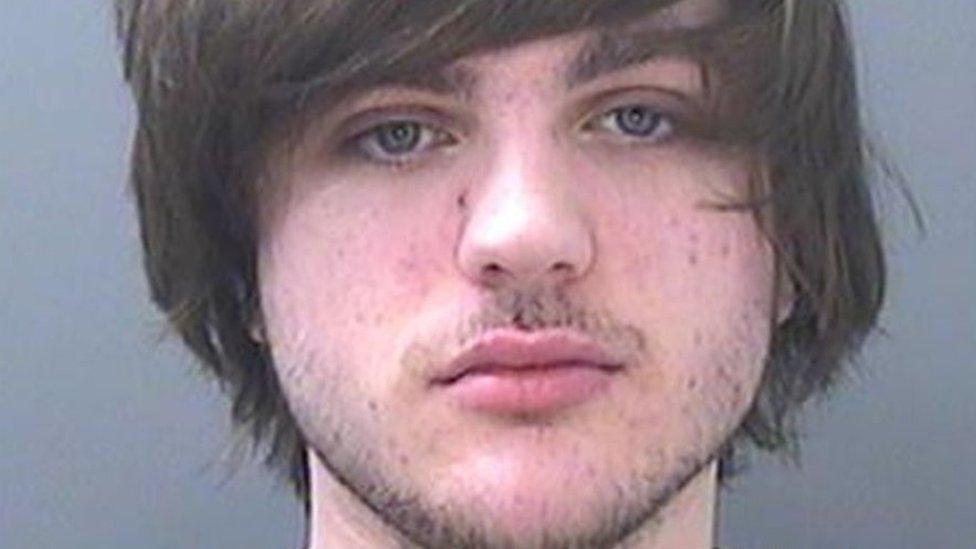
- Published9 December 2021
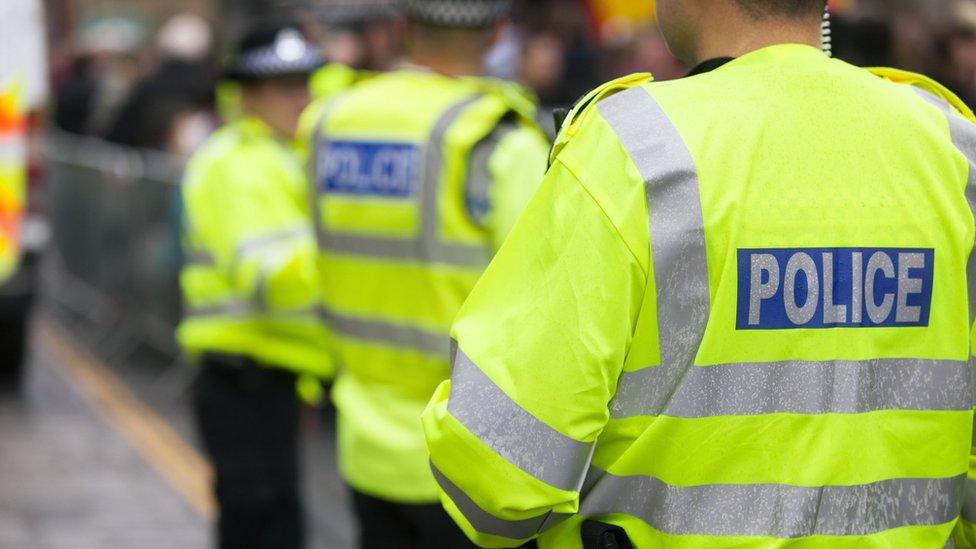
- Published30 June 2020
